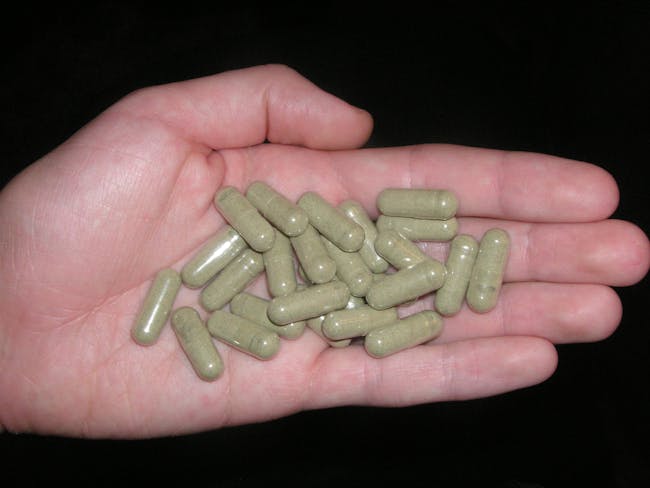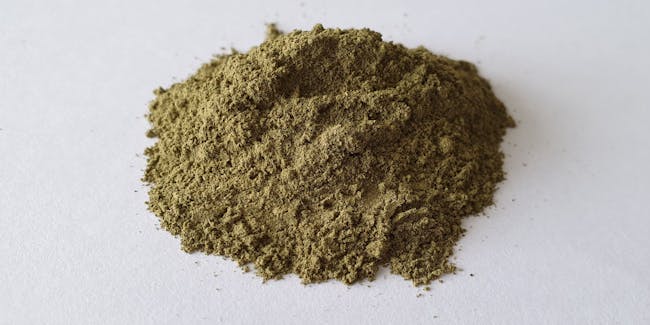As regulation grows, the truth emerges: Kratom could benefit consumers, if used safely.
If you want to make a claim, you’d better be prepared to back it up. That’s the stance the US Food and Drug Administration took recently when it cracked down on sellers of the trendy herbal drug kratom who made unsupported health claims about it.
The FDA warned two retailers — one in North Carolina and one in California — for marketing kratom supplements as treatments for opioid addiction, chronic pain, and a variety of other conditions.
FDA rules bar food and drug manufacturers from marketing substances with health claims that haven’t been supported by FDA-approved trials. Meanwhile, early stage research and kratom advocates suggest that the herbal drug has the potential to be an effective treatment for chronic pain and opioid use disorder.
The uncertainty over kratom’s health effects has even led the state of Utah to make an end-run around the FDA. In the Beehive State, they’ve taken to passing their own kratom laws.
Curtis Bramble, a Republican state senator from Provo, the city an hour south of Salt Lake City and home to Brigham Young University, saw his bill, called the “Kratom Consumer Protection Act,” signed into law in March and made effective in May.
Rather than banning the substance, the Utah law requires kratom manufacturers to show that their product is unadulterated, or pure, as in not mixed with other elements. (In the FDA’s statement, the agency announced it had found “high levels of heavy metals in kratom products.”) They also have to register with the state.
“It appeared to me, based on all the evidence that I was able to research, that the best course would be not to ban it, but to require anyone who manufactures or distributes it to register with our state Department of Agriculture,” Bramble told Inverse.
Though the recent crackdown makes it clear that the FDA is committed to enforcing a clear distinction between anecdotal reports and clinical evidence, arguments like Bramble’s acknowledge the fact that kratom could benefit consumers, if used safely.

Kratom’s Role in Opioid Dependence
Inverse reported previously that kratom’s profile of effects includes both health risks and benefits, as a growing body of scientific literature has documented. A paper published in the International Journal of Drug Policy in May, for instance, presented anecdotal reports that kratom helps reduce opioid dependence. A 2010 paper in the same journal showed that Malaysian men regularly used kratom to manage heroin withdrawal symptoms or avoid using heroin. Neither of these papers, however, presented evidence that met the FDA’s standards of evidence, which requires data from clinical trials.
See also: Kratom Could Be Illegal Before It Gets a Chance to Solve the Opioid Crisis
On the risk side, reports have shown that kratom can cause physical and psychological withdrawal with heavy or frequent use.
Recently FDA warning letters went out to KratomNC and Cali Botanicals, LLC, which sell a variety of kratom products online. The FDA cited the website of KratomNC as an example of the unsupported claims it is cracking down on, which violate the Federal Food, Drug, and Cosmetic Act:
Kratom is used for energy, to increase attention/focus, to relax, and also to treat pain and addiction. Here is just some of what our customers have used kratom to treat . . . Chronic Pain, Migraines, Opiate Addiction, ADHD/ADD, Anxiety, Depression, Arthritis, Insomnia and much more!

In this case, KratomNC is claiming that kratom could have health effects far beyond what the early evidence suggests.
“The marketing and sale of unapproved opioid addiction treatment products is a potentially significant threat to the public health,” wrote Donald D. Ashley, the director of the Office of Compliance in the FDA’s Center for Drug Evaluation and Research. “Therefore, FDA is taking measures to protect consumers from products that, without approval by FDA, claim to diagnose, mitigate, prevent, treat or cure opioid addiction.”
Is Kratom an Opioid?
In early 2018, the FDA argued that kratom should be classified as an opioid alongside drugs like morphine, oxycodone, and fentanyl. Experts called this report into question for various reasons, including the fact that it relied on a computer simulation as well as case reports of overdose deaths that largely also involved other drugs.
Notably, while the FDA’s stance on kratom is clear, the US Drug Enforcement Administration has not yet moved to ban to the substance.
Bramble, the Utah senator, tells Inverse he generally respects the FDA’s work but thinks the FDA’s stance on kratom has been based on “predetermined conclusions.”
His approach to regulating kratom treats it as a matter of balancing consumer safety with access to what he sees as a helpful substance. Once he proposed the legislation, he recalls, the phone calls and emails from constituents began pouring in, in which people recounted the ways in which kratom had helped them treat chronic pain and recover from opioid dependency. The issue of regulating kratom also hits close to home for Bramble, as his son-in-law died from an opioid overdose.
“Up until I ran the legislation it was completely unregulated as an herbal remedy or nutritional supplement,” he says. In his view, the best way to protect consumers was to ensure it was subject to the same safety standards as any food product on the market.
He likens the current status of kratom to medical cannabis, a drug for which federal and state regulations differ wildly. Still illegal at the federal level, most states in the US now have laws that allow cannabis for medical use, recreational use, or both.
In this way, Bramble hopes Utah can be a model for other states that want to regulate kratom without banning it.
(For the source of this, and many other important articles, please visit: https://www.inverse.com/article/57137-kratom-fda-crackdown-highlights-a-legal-tension/)









